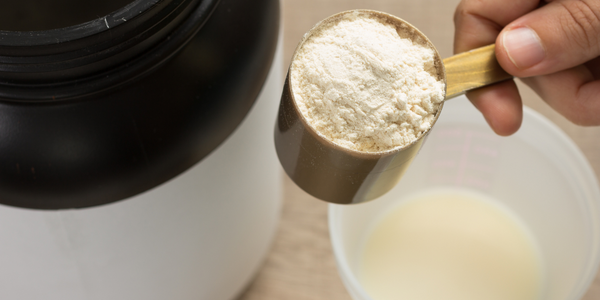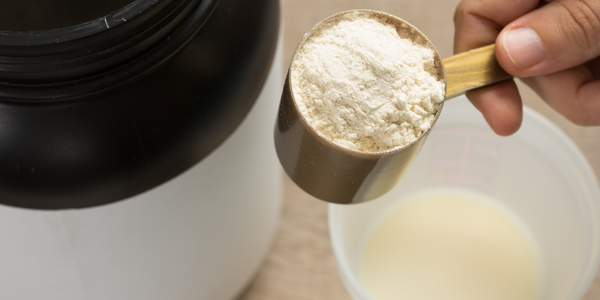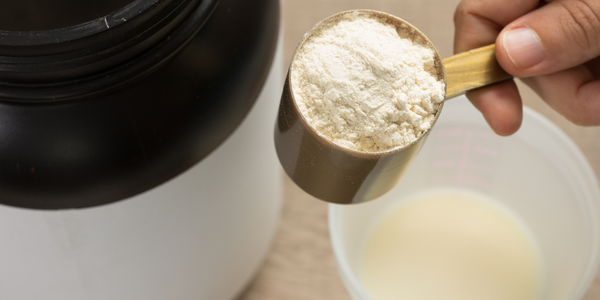The 6 Most Searched Benefits of Whey Protein in 2024
Whey protein, derived from milk during the cheese-making process, is a complete protein powerhouse packed with all nine essential amino acids. Known for its rapid absorption and high bioavailability, it has become a go-to supplement for those seeking to enhance muscle recovery, support weight loss, and improve overall health.
In 2024, whey protein’s popularity continues to grow as people recognize its versatility and scientifically backed benefits. It’s not just for bodybuilders or athletes anymore—it caters to a wide audience, from fitness enthusiasts to busy professionals looking for a convenient way to meet their nutritional needs.
In this article let’s delve into the six most searched benefits of whey protein this year, exploring why it remains an essential supplement for many.
1. Enhances Muscle Growth and Recovery
One of the primary reasons people opt for whey protein for building muscle is its unparalleled ability to support muscle growth and recovery [NIH]. Rich in essential amino acids, particularly leucine, whey protein is a powerhouse for muscle protein synthesis. This process is critical for building and repairing muscle tissue after workouts, making whey protein for post-workout recovery a must-have for athletes and gym enthusiasts.
What sets whey protein apart is its fast absorption rate. Unlike other protein sources, whey quickly delivers nutrients to muscles, aiding in efficient recovery. This benefit is especially crucial for those engaging in strength training or endurance exercises, where muscle repair and growth are ongoing processes. Studies also highlight that consuming whey protein post-workout can significantly enhance muscle strength and size over time [NIH].
2. Promotes Weight Loss and Satiety
Whey protein isn’t just for bulking up; it’s also a fantastic tool for weight management. A key benefit is its ability to promote satiety, the feeling of fullness which can help curb overeating and reduce calorie intake. By influencing hormones like ghrelin—often referred to as the hunger hormone—whey protein helps keep cravings in check.
Additionally, whey protein supports fat loss while preserving lean muscle mass. This dual effect is invaluable for individuals aiming to shed weight without compromising their muscle tone.
3. Boosts Immune System Function
Packed with bioactive compounds like lactoferrin and immunoglobulins, whey protein helps strengthen the body’s defense mechanisms [NIH]. These compounds are known for their ability to fight off infections and support overall immune health.
Moreover, whey protein plays a significant role in improving gut health, which is closely linked to immunity. A healthy gut microbiome is essential for maintaining a robust immune system, and the prebiotic properties of whey protein contribute to this balance. Regular consumption can enhance your body’s ability to ward off illnesses, making it a key player in your wellness routine.
4. Improving Metabolic Health
Whey protein has shown promising benefits for metabolic health, particularly in managing blood sugar levels [NIH]. Its ability to slow the absorption of glucose into the bloodstream makes it a valuable addition for individuals with insulin resistance or type 2 diabetes. By moderating post-meal blood sugar spikes, whey protein supports better glycemic control.
Beyond blood sugar management, whey protein is known to boost metabolism. It increases the body’s thermogenic effect—the calories burned during digestion—helping you burn more calories even at rest. This metabolic boost, combined with its satiety-promoting properties, makes whey protein a game-changer for those aiming to optimize their metabolic health.
5. Supporting Bone and Joint Health
While protein is often associated with muscle health, its role in maintaining strong bones and joints is equally important. Whey protein supports collagen production, which is vital for joint health and mobility. Collagen acts as a cushion for joints, reducing the risk of wear and tear over time.
Furthermore, whey protein enhances calcium absorption, contributing to stronger bones. This benefit is especially significant for aging individuals, who may experience bone density loss. By incorporating Best Whey Protein for Health into your diet, you’re not only nourishing your muscles but also fortifying your skeletal system.
6. Enhancing Skin, Hair, and Nail Health
Whey protein’s impact extends beyond internal health; it also contributes to external beauty. The amino acids in whey protein play a pivotal role in producing keratin and collagen, proteins essential for healthy skin, hair, and nails. Regular intake of whey protein can improve the texture and strength of these features, giving you a natural, radiant glow.
Additionally, whey protein boasts antioxidant properties that combat oxidative stress, a key factor in skin aging. By neutralizing free radicals, it helps maintain skin elasticity and reduces the appearance of wrinkles. If you’re looking to enhance your beauty from within, whey protein is an excellent addition to your routine.
From whey protein for muscle growth and weight management to immunity and beauty, its benefits are backed by science and widely embraced. Whether you’re hitting the gym, looking to shed a few pounds, or simply aiming to enhance your overall well-being, whey protein can be a valuable ally on your journey. With consistent use and the right approach, you can unlock the myriad benefits of whey protein and take a step closer to your health goals.

























